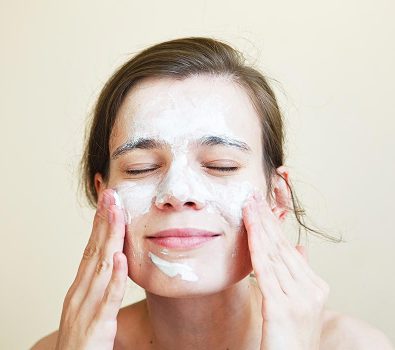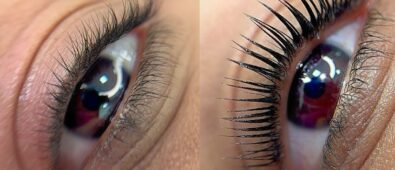Face serum – nothing works as brilliantly as this elixir which is like beauty captured in a small bottle. We like to buy serums. Too bad we tend to feel disappointed afterwards. What makes a good serum? How do you know this is the one? See the answers to the most popular questions and doubts related to face serums. Be a conscious shopper!
1. Who should use face serum?
There are no limits. A good serum works well on all skin types. You just need to suit it to the needs of your own skin. For example, if you’ve got lots of sun spots after the summertime, you should reach for serum with vitamin C or retinol which is ideal for the fall.
2. Do all skins like serums?
Every skin type likes a particular type of serum. This is similar to choosing a moisturizer – dry skin doesn’t gel along with salicylic acid as much as oily skin doesn’t like thick creams. That is why the first thing you do is getting to know the needs of your skin and its type, and then move on to purchasing a serum.
3. Why is my face serum piling?
There are two main wrongdoers:
- your serum is over-loaded with silicones and preservatives, in other words, it’s made of improper ingredients. That is why it leaves a silicone layer on the face instead of penetrating the skin. When you add next products, it starts piling because it settled on the face and isn’t soaked by the skin.
- your serum is fine but the moisturizer doesn’t match – it’s comedogenic and builds up on skin. It simply happens that two products don’t make a good match so try a different moisturizer and see if the problem’s gone. A foundation might be the wrongdoer as well.
4. What’s the best time for applying serum – AM or PM?
Plenty of serums work both for the day and night skin care. Usually a manufacturer provides the preferred time on the packaging but if your serum is suitable for morning and evening application, you are the choice maker. Think when your skin benefits most from a given product e.g. vitamin C serum provides a radiance boost so you can use it in the AM to get the glow. On the other hand, retinol serum is a perfect nighttime product because retinol is photosensitizing.
5. What makes a good face serum?
Not a packaging or commercial, that’s for sure. You should go through the INCI as well as opinions and reviews. Always check the way a product works on different skins, what other users think about it and how it’s rated. Product rankings also give you a list of the best-selling and noteworthy serums. The list of ingredients is a rich source of information too. Check if an active ingredient is on top, if the composition is free from parabens and silicones, and make sure it’s cruelty-free. The fewer the components, the lower the risk of allergic reaction.
6. Why serum made my skin dry?
Face serum is a light cosmetic and you should pair it with other skin care product. It always needs company in form of emollient which leaves an occlusive coating locking moisture in the skin. If you want serum to work freely in deep skin layers, you need to keep it inside, in other words, you need to keep it safe under a layer made of a moisturizer or natural oil (best emollient). Only then does the serum work the right way so your skin isn’t left dry. Using merely a serum is the most common skin care mistake!
Note! Retinol serum needs to paired with a sunblock. Only serum-and-cream duo brings the best skin benefits.
7. What are the best ingredients in serum?
You should avoid some weird-named substances and choose prestigious, tested and trusted ingredients, including retinol, vitamin C, hyaluronic acid, coenzyme Q10, aloe and stem cells.



